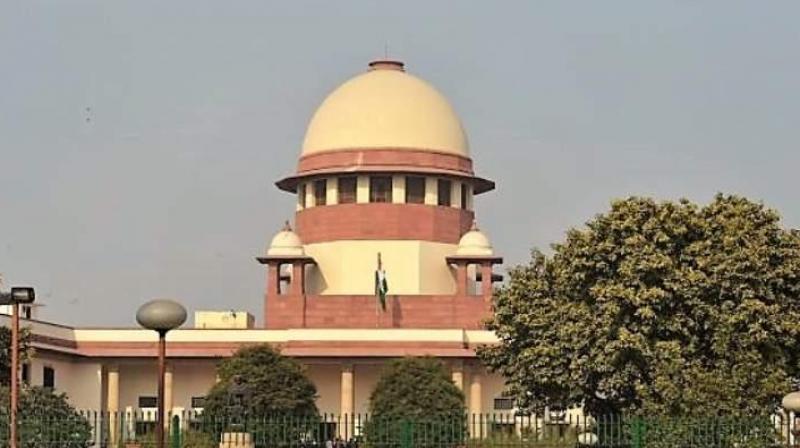SC refuses to stay Uttarakhand, UP laws regulating inter-faith marriages
The petitioners submitted that the two laws seemed to be premised on conspiracy theories

New Delhi: The Supreme Court on Wednesday refused to stay the Uttarakhand and Uttar Pradesh laws regulating inter-faith marriages and conversion while issuing notice in two pleas challenging the validity of the laws.
Refusing to stay the laws, a bench headed by Chief Justice of India Sharad A. Bobde said it can’t decide which provisions of the two laws were oppressive unless it hears the state governments concerned.
The Uttar Pradesh government has promulgated an ordinance regulating inter-faith marriages and religious conversions and a similar was enacted by the Uttrakhand in 2018.
When advocate Pradeep Kumar Yadav pointed out that the BJP governments in Madhya Pradesh and Haryana were also bringing laws on the lines of the UP ordinance and society is affected, the CJI said the court would not expand the petitions’ scope.
The bench, also comprising Justice A.S. Bopanna and Justice V Ramasubramanian, however, agreed to examine the validity of the ordinance and the laws.
The court was hearing petitions, one by Delhi-based lawyer Vishal Thakre and the another by Mumbai-based NGO Citizens for Justice and Peace (CJP), challenging the constitutional validity of the UP Prohibition of Unlawful Conversion of Religious Ordinance, 2020, and the Uttarakhand Freedom of Religion Act, 2018.
The petitions under Article 32 stated that the two laws were violative of Articles 21 and 25 as they empower the State to suppress an individual’s liberty and the freedom to practice religion of one's choice.
The Uttarakhand law and UP ordinance essentially bar conversion to any other religion for the purpose of marriage.
The ordinance lays down a detailed procedure to be followed before an individual can convert from one religion to another. Violation of the same entails criminal liability on the individual who undergoes conversion and the individual who converts the person.
The ordinance also states that no person shall convert or attempt to convert either directly or otherwise any other person from one religion to another by use or practice of misrepresentation, force, undue influence, coercion, allurement or by any fraudulent means or by marriage nor shall any person abet, convince or conspire such conversion.
The petitioners submitted that the two laws seemed to be premised on conspiracy theories and assume that all conversions are illegally forced upon individuals, though they have attained the age of majority. It intrudes into the right to privacy under Article 21 and freedom of religion under Article 25, it was contended.
The plea also highlighted that the UP ordinance casts the burden of proof on the accused against the established principles of criminal jurisprudence.
“The burden of proof gets shifted and it is dangerous as it is a non-bailable offence and also under a circumstance where they are pitched against hostile communities and family members who masquerade in the glory of protection of women," one of the petitions said.
Initially, CJI Bobde was not in favour of issuing notice after Solicitor-General Tushar Mehta informed the court that both the challenges are pending in the respective High Courts.
They however, agreed to hear the [etitions on advocate Pradeep Kumar Yadav arguing that the Supreme Court can take up cases which are pending in different High Courts.
Objecting to the parties coming straight to the Supreme Court under Article 32, the CJI said: “First you exercise your right under Article 32 by approaching the respective High Courts and come here if you don't get any relief.”
Senior advocate C.U. Singh told the court that the legislations under challenge are “obnoxious” in nature and that couples were being picked up by force from wedding places.
“We need stay on reverse burden of proof and intimation to police for marriage. Prima facie it’s an oppressive clause. It’s a non-bailable offence. This is there in both Acts. Daily there are reports of people being picked up by force. It is obnoxious to seek prior permission for marriage from a magistrate,” Singh argued.

